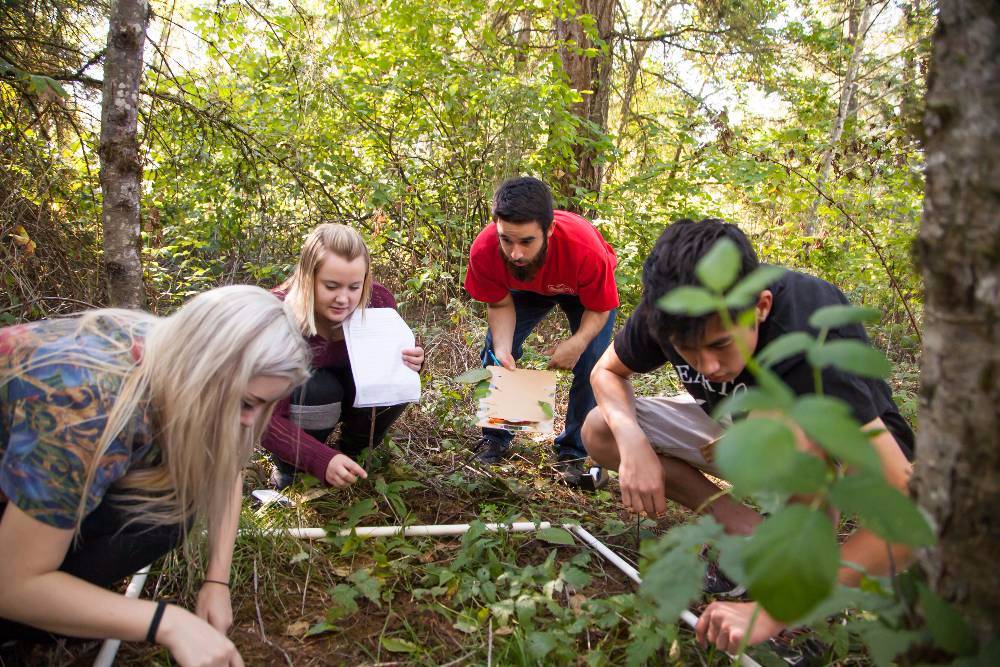Environmental Science Department
About
Environmental Science is the study of physical and biological properties that make up the environment and their relationship to living organisms on the planet.
This interest area is an interdisciplinary field that combines foundational knowledge in a variety of earth sciences.
Program Maps
Degrees and Certificates
Request Information
Contact
Learning the Complex Systems of our World
As society explores new ways to live sustainably on the planet, research and creative solutions will build upon knowledge of natural systems.
Environmental scientists apply mathematic and scientific principles to solve environmental issues and develop ways to reduce, correct, or prevent damage to the environment.
Clark's program provides opportunities to take classroom theory and apply it in the real world. Students participate in classroom lab projects or field research and experimentation in the scenic areas that make up the Pacific Northwest.
Career Opportunities
Employment opportunities for environmental scientists vary depending on industry and
exist in a variety of formats: environmental specialist, industrial ecologist, environmental
compliance inspector, and geoscientist.
According to The U.S. Department of Labor, employment projections forecast environmental scientist jobs growing at a rate of 10%, with a median wage in the Portland-Vancouver metro area
estimated at $36.86 per hour.
Clark’s program offers an Associate in Science Transfer degree (AST1) designed for students planning to transfer to a four-year institution to pursue a bachelor's degree program in environmental science. The statistics listed are estimates based on a bachelor’s degree and above.

